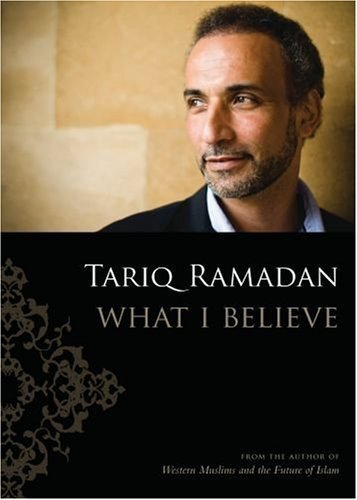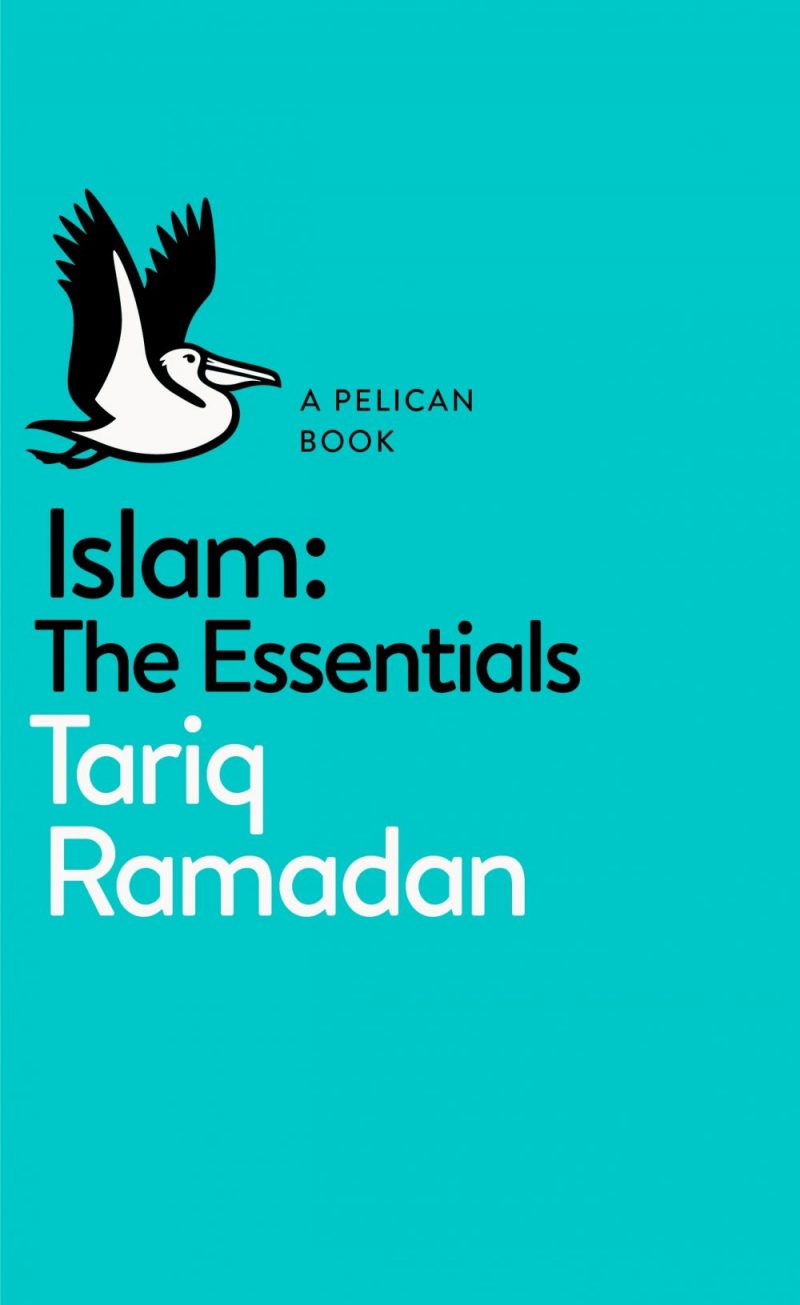Tariq Ramadan is very much a public figure, named one of Time magazine’s most important innovators of the twenty-first century. He is among the leading Islamic thinkers in the West, with a large following around the world. But he has also been a lightning rod for controversy. Indeed, in 2004, Ramadan was prevented from entering the U.S. by the Bush administration and despite two appeals, supported by organizations like the American Academy of Religion and the ACLU, he is still barred from the country at this time.
In What I Believe, Ramadan attempts to set the record straight, laying out the basic ideas he stands for in clear and accessible prose. He describes the book as a work of clarification, directed at ordinary citizens, politicians, journalist and others who are curious (or skeptical) about his positions. Aware that that he is dealing with emotional issues, Ramadan tries to get past the barriers of prejudice and misunderstanding to speak directly, from the heart, to his Muslim and non-Muslim readers alike. In particular, he calls on Western Muslims to escape the mental, social, cultural, and religious ghettos they have created for themselves and become full partners in the democratic societies in which they live. At the same time, he calls for the rest of us to recognize our Muslim neighbors as citizens with rights and responsibilities the same as ours. His vision is of a future in which a shared and confident pluralism becomes a reality at last.
In What I Believe, Ramadan attempts to set the record straight, laying out the basic ideas he stands for in clear and accessible prose. He describes the book as a work of clarification, directed at ordinary citizens, politicians, journalist and others who are curious (or skeptical) about his positions. Aware that that he is dealing with emotional issues, Ramadan tries to get past the barriers of prejudice and misunderstanding to speak directly, from the heart, to his Muslim and non-Muslim readers alike. In particular, he calls on Western Muslims to escape the mental, social, cultural, and religious ghettos they have created for themselves and become full partners in the democratic societies in which they live. At the same time, he calls for the rest of us to recognize our Muslim neighbors as citizens with rights and responsibilities the same as ours. His vision is of a future in which a shared and confident pluralism becomes a reality at last.
What I Believe
OUP USA
160 pages | 176 x 126mm
978-0-19-538785-8 12 November 2009









As Salamu Alaikum wa Rahmatullahi wa Barakatuuh Brother Tarik Ramadan
How can I buy this book in English, I cann’t speak French and Arabic, I could not find/buy this book in my gemeide library.
Thank you,
JazakAllah khoiron katsiro.
Wassalam
nunung sumiyati
Salaam… Just finished reading this book… I thoroughly recommend it for all Muslims and non Muslims. It’s extremely well written, very clear and concise and offers many avenues for the way forward in order to achieve a better society for all.
I have not read this excellent sounding book. I have one question. Both Islam and Chrisitanity (and most other religions) have teachings of violence in their sacred books…and the concerned religion will do almost anything (even murder) to keep anyone from removing these teachings from their sacred writings.
In the case of ISLAM, there are many good Muslims who are trying to remove these violent teachings from the Holy Quran…in all too many instances they face a penalty of “death” for even trying to remove these teachings. Do Muslims, then, have any choice but to abandon the Religion of Islam ????????????
No one is trying to remove or deny anything that is mentioned in our Quran .. and to correct your infos there’s nothing such as violence teachings in islam.. yes , we all know that there are some verses referring to warfare and violence but only in limited contexts , cause violence is needed in some particular circumstances ( im not encouraging violence ) but let us not confuse peace to pacifism ..i hope you get my point ..
“No one is trying to remove or deny anything that is mentioned in our Quran .. and to correct your infos there’s nothing such as violence teachings in islam.. yes , we all know that there are some verses referring to warfare and violence but only in limited contexts , cause violence is needed in some particular circumstances ( im not encouraging violence ) but let us not confuse peace to pacifism ..i hope you get my point ..”
dalal on November 7, 2014 at 12:26 am
from https://en.wikipedia.org/wiki/Pacifism “Pacifists generally reject theories of Just War.”
Islam is at war with the U.S. Hence violence. Correct?
Is Tariq Amadan really the son of the founder of the Muslim Brotherhood ?? This is what I find reported ..here and there on the net. Thank you.
Tariq is the grand son of the founder of Muslim brotherhood not the son.
I would like to congratulate late this website on its openness and willingness to receive another person’s opinion. It is perhaps the most open website that I have encountered on the internet. Nelson Horton
Salaam Alaykum,
Cher Tariq
Je souhaiterai connaitre votre opinion sur un jeune martyr(assassiné lachement) de 14 ans.
Que pensez vous de son statut actuel dans l’au-dela?
Merci infiniment de m’eclairer sur le sujet
et continuer a proner l’islam d’amour,de tolerance,de fraternite,d’egalite des sexes,de justice,de pardon et…..
Que vous garde et vous benisse
Mariame
Dearest Mr Ramadan,
Salam and may the new year give you more ignition of motivation and desire to inspire.
I am writing from Singapore as one of your new fan. I hope The Almighty brings the world more thinkers like you; balanced and apt in your worldview.
Anyway, your book made mention of my country – Singapore – and I would like to make a mini clarification.
I realise that you have equated Singapore with countries like Britain, Canada and the US as well as other countries where the first migrants were not Muslims, and Muslims were just post-modernist migrants.
However, I’m confused about the reason you listed Singapore in this category since Singapore is natively inhabited by the Malays, situated in the Malay archipelago and Malays were majority Muslims. Muslims were never the “later immigrant” and in fact, Islam has always been here – based on historical scriptures – even before it was founded by the British.
I hope you can clarify because I’m nothing but an undergraduate who could be fatally wrong in my understanding.
May He guide us all. I am really loving your thoughts, Sir.
With love,
Muhammad Idaffi Othman